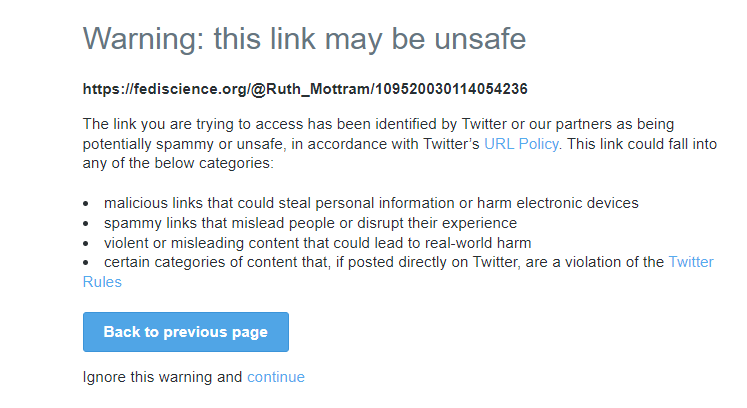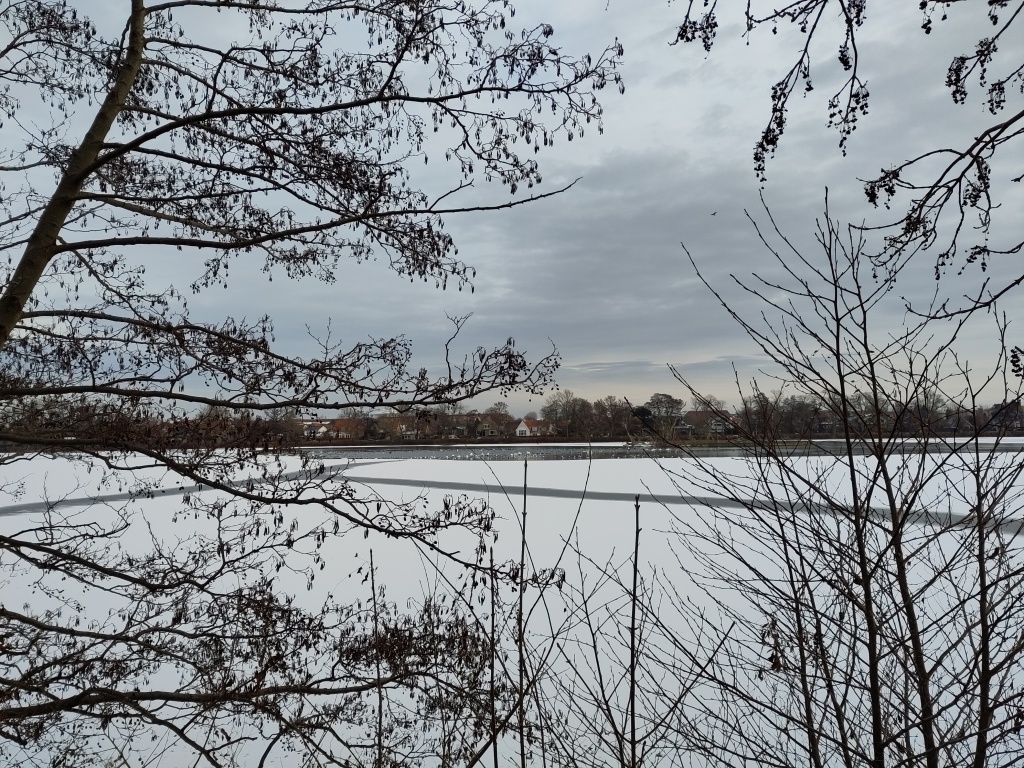Update: if you’ve arrived here from Twitter – or even if you haven’t – welcome, pull up a chair, have a seat and a read around the subject of this post: the fediverse – the online ecosystem where distributed servers can talk to each other…
It’s become clear that this post is rather popular as newer people are finding their way to mastodon, and, perhaps, dipping a toe in. It’s also I think become clear just how empty science twitter is becoming, and how much more interesting mastodon is. At the same time, having been freed from what Cory Doctorow calls the walled garden (go ahead, read the article, I’ll wait), I’m very reluctant to enter a new one So I hope the following is helpful, feel free to leave comments with other hints and tips. And, Welcome to the fediverse…
I’d originally been meaning to write this post for a while but never quite got around to it until new rules on the birdsite made it quite likely that my account would be suspended. In the end that did not happen, but by then, I’d already been snared by the mastodon…
However, I have been preparing for a relocation and I have been cross-posting from mastodon for a while. Note though that clicking on a mastodon link in twitter will bring up a potentially unsafe warning (which is nonsense of course), e.g. clicking on the link to my mastodon handle in my twitter profile page shows “Warning: this link may be unsafe”.

It has become increasingly clear that the new owner of twitter is more interested in preserving and fortifying his walled garden than in opening it up as a true public square. In fact, I had felt that over the last few years my interest in being there has waned. I’m not the only one. Mastodon has been a breath of fresh air.
On this point there’s not much I can add to what others have said. I had not actually expected the sale to go through, when it did I did not expect things to go so alarmingly haywire as fast as they have. There has been great benefits to me personally as well as to countless activists and orga organisations with being on there but the reinstatement of blatantly abusive and bigoted accounts, the bizarre banning of journalists, and finally the rule against posting links to external sites strongly the suggest the show is over. We have alternatives now..
I have been on mastodon for a couple of years but only revitalised my account a month or so ago. Massive thanks in this to Victor Venema who persuaded Frank Sonntag to set-up fediscience.org and then persuaded me to join it. A form of fixing the roof while the sun was shining you might say. And as more people have joined it’s really been a lot more rewarding. It’s different to Twitter. It’s not a full replacement. I intend to post here more often too. (Especially as the tools to do so quickly and easily via my mobile phone – a fairphone 4 – have really developed over the last year or two.)
But after today I will not be posting on twitter directly anymore. I may drop by from time to time to check out what’s going on. I will instead be hanging out in the fediverse.
You can find me on fediscience.org for science and various other nonsense, on helvede.net for danish language chat, on pixelfed.eu for photos and pictures and of course here on sternaparadisaea.net for blogs.
The last few weeks in the fediverse have been invigorating. I’ve been participating and creating more rather than passively consuming, expect some changes here on my much neglected blog too in the near future.
And finally here are some tips for getting the most out of the fediverse:
1. Follow lots of people. And I mean really, follow a lot. You need to make you own timeline here, there is no algorithm doing it for you.
2. Boost more than you think you need to, including reupping your own posts to catch different audiences at different times of day (it’s like twitter before the algorithm became so dominant).
3. Create lists of your favourite accounts so you don’t miss anything. I end to use these more than my home timeline in fact. For example I have one for “climate science”, one for “media orgs” + one for “friends. I check in with different lists at different times of day.
4. Follow hashtags to find good content and new accounts that interest you. As an example I follow #Birds, #Ukraine #mosstodon + #SeaLevelRise among others. Some user interfaces (e.g. Halcyon.social) allow you to read these in the same way you would on tweetdeck. Sprinkle your posts liberally with hashtags too.
5. Try out different apps to find the one you like best. I have been mostly using Tusky but I’m now testing fedilab too. On the desktop using halcyon.social gives a very twitter like interface which is appealing.
6. Put in some effort to curate your own experience in the early days. You’ll need to work at it the first few weeks to find good accounts, hashtags etc to follow. Don’t expect everything to be served up on a plate, it’s different here. But I like it a lot..
7. There are masses of tips and helpful articles online, try following e.g. feditips for more suggestions.
8. Use debirdify, movetodon and/or other programmes that are around to help you find people you know from the birdsite. There are already a lot of resources to find earth scientists and other academics, as well as journalists – which also have a form to add yourself in some cases. I am for sure missing a lot here too.
9. Write an #introduction post with hashtags of your interests. This will help new people find you. Browse the #introduction on your instance to find other people to follow.
10. Mastodon works best if you engage with other users – fill out your profile so people can see who you are/what you’re interested in. But remember privacy – and that this platform as a refuge for people who have been hounded off other platforms. Use content warnings liberally and don’t forget to insert Alt-text on images you post. Also use #CamelCase on your hashtags to help people using screen readers understand what you’re posting.
I’ll update this post as I think of things, feel free to also post helpful stuff in the comments or as replies to the post on the birdsite or on Mastodon…

One thought on “Navigating the fediverse”